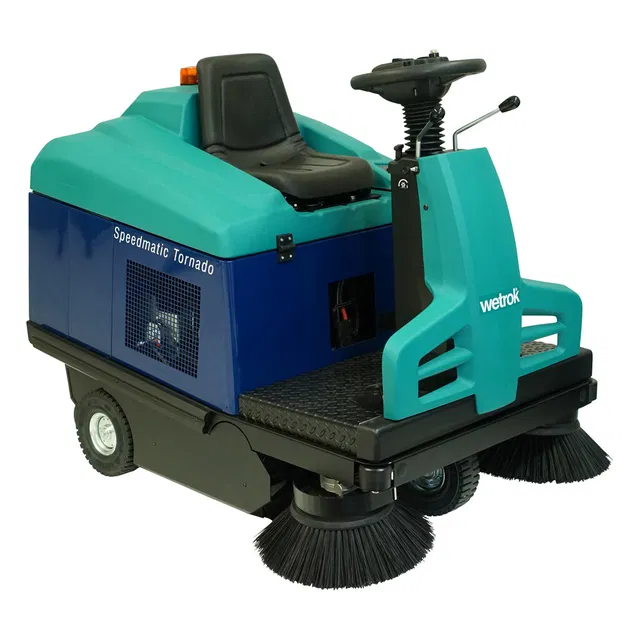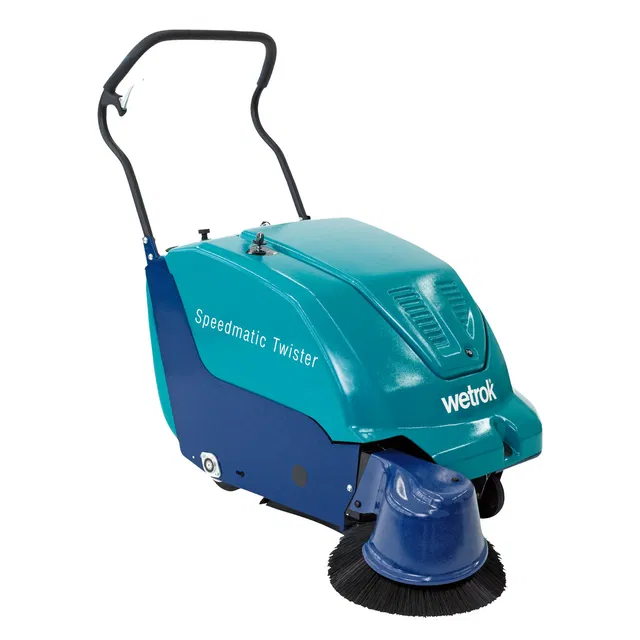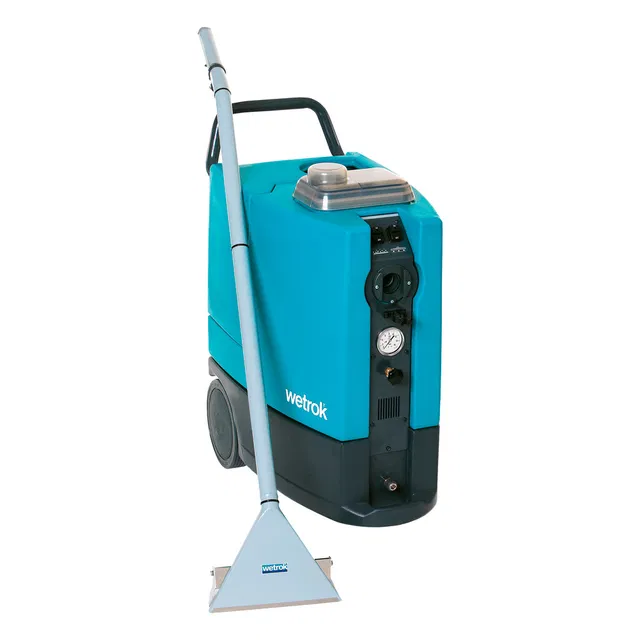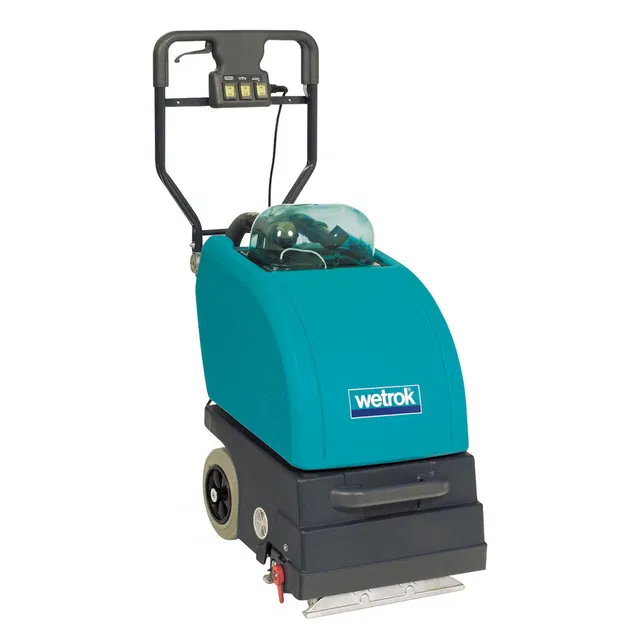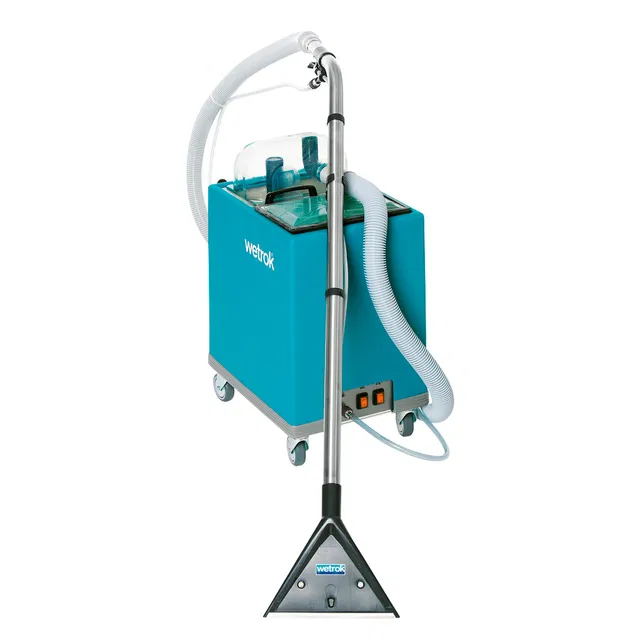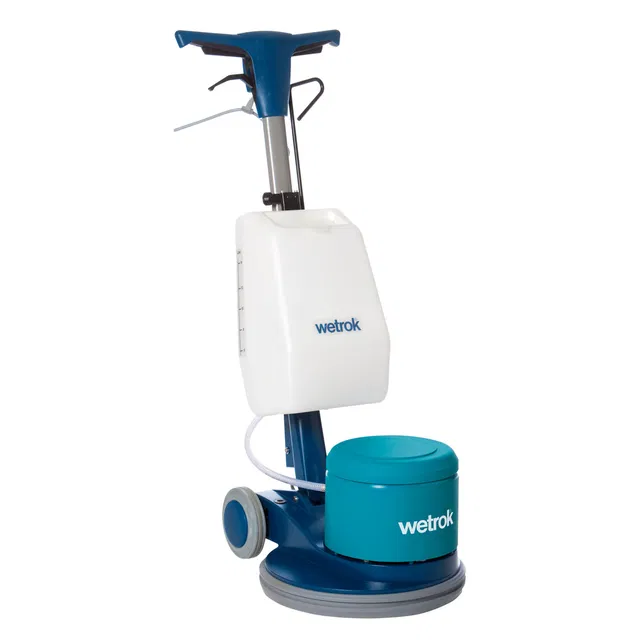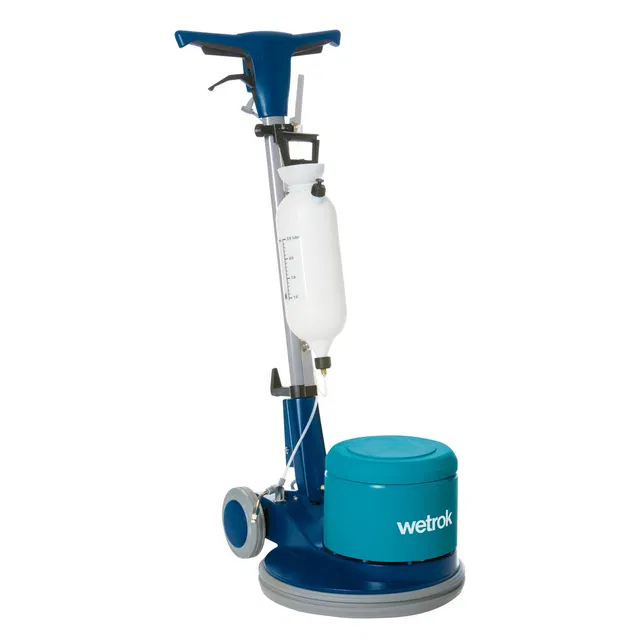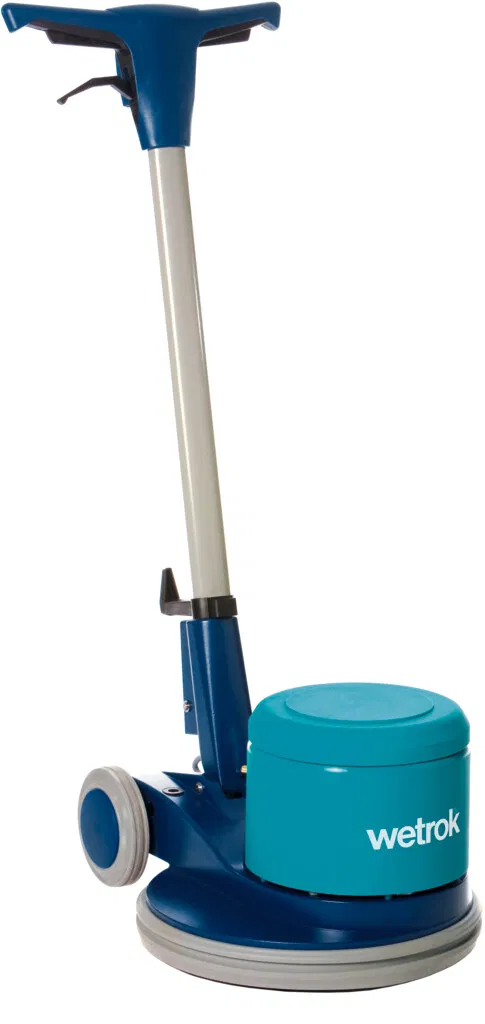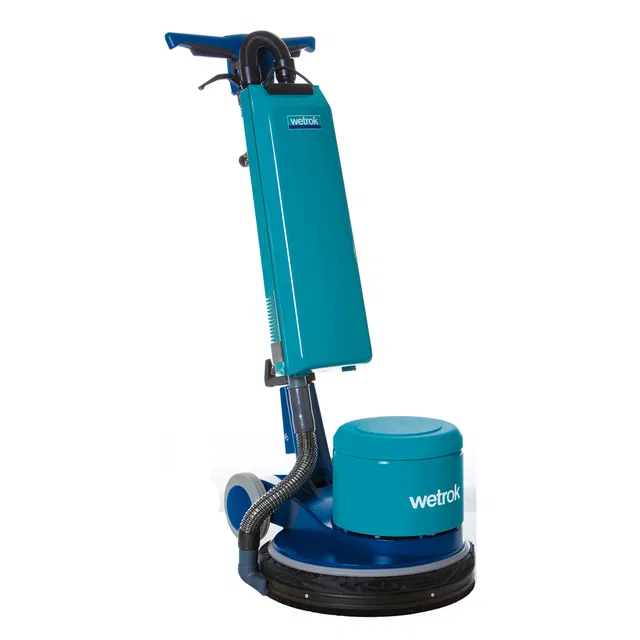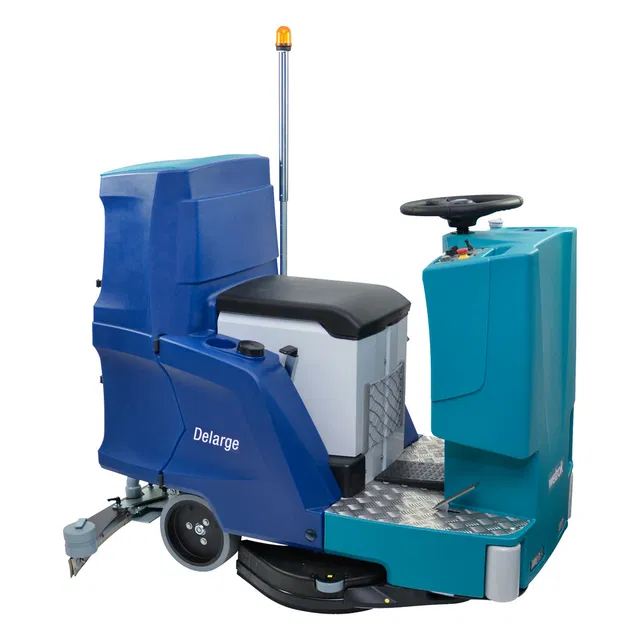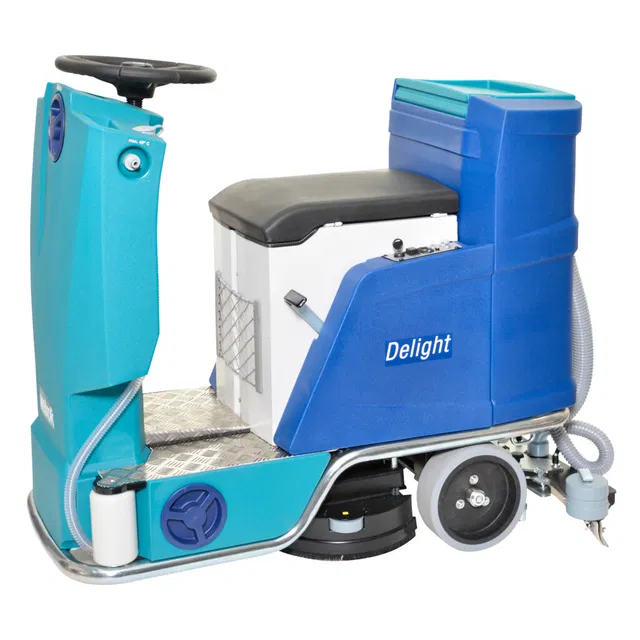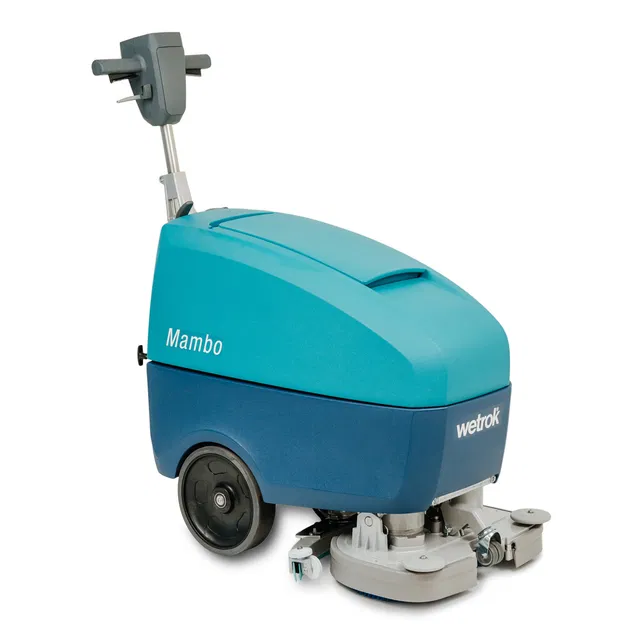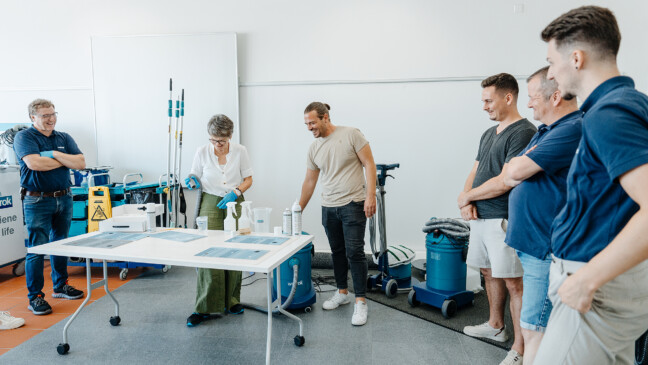
11.01.24
Cleaning contractor Rohr AG switches to granule cleaner
Since the summer of 2018, Rohr AG has been cleaning 34 buildings on the Petersplatz Campus of the University of Basel using Wetrok granule cleaners. This modern cleaning method saves such high process costs that Rohr AG decided to switch all its properties to granule cleaning by the end of December 2019. An interview about the advantages of granules, pioneering spirit, and smart cost calculation.
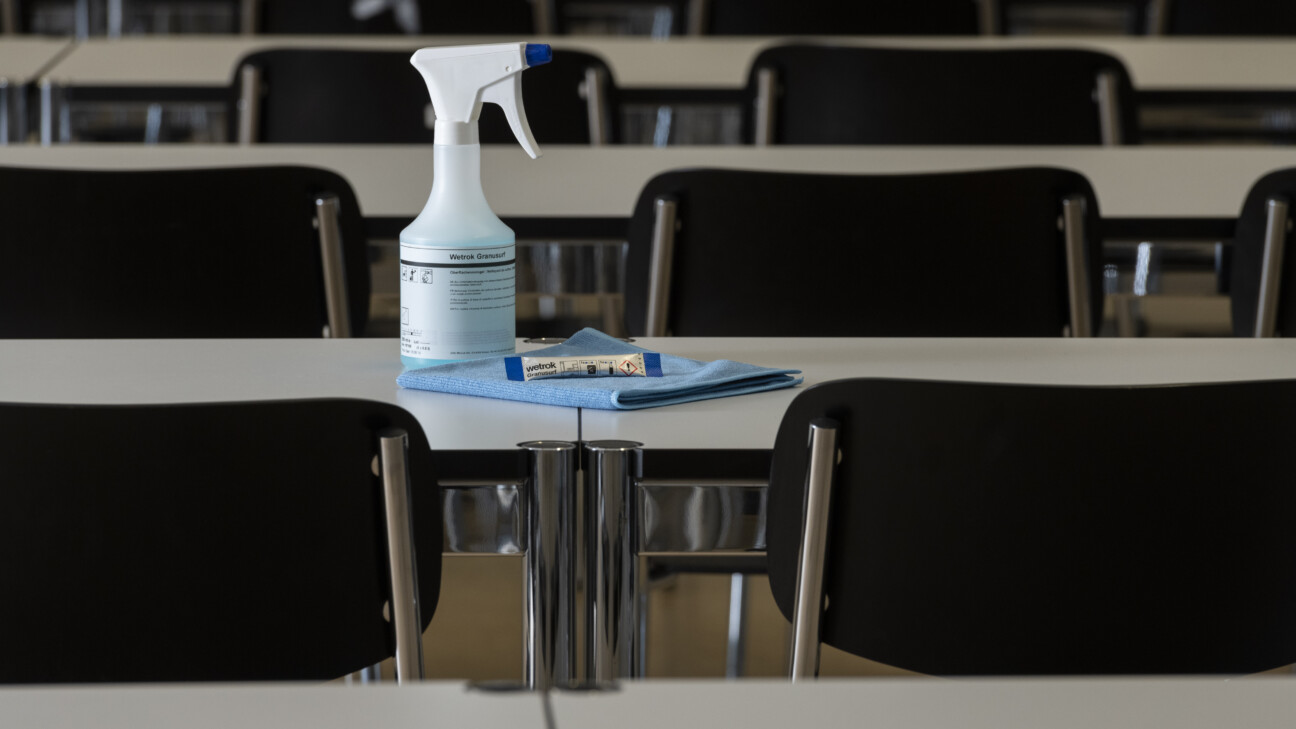
Mr. Härry, Rohr AG is open to innovations and enjoys trying out new technologies. What requirements must an innovation meet?
That’s correct; the pioneering spirit has been with us for the past 20 years. We were one of the first cleaning companies in Switzerland to start using microfiber cloths. The most crucial criterion for innovations is, and remains, quality. The cleaning results with the innovation must be better or at least as good as the previous solution. The most significant process advantages are of no use if the cleaning quality isn’t up to par. At the end of the day, our customers judge us based on our promise: ‘guaranteed cleanliness.
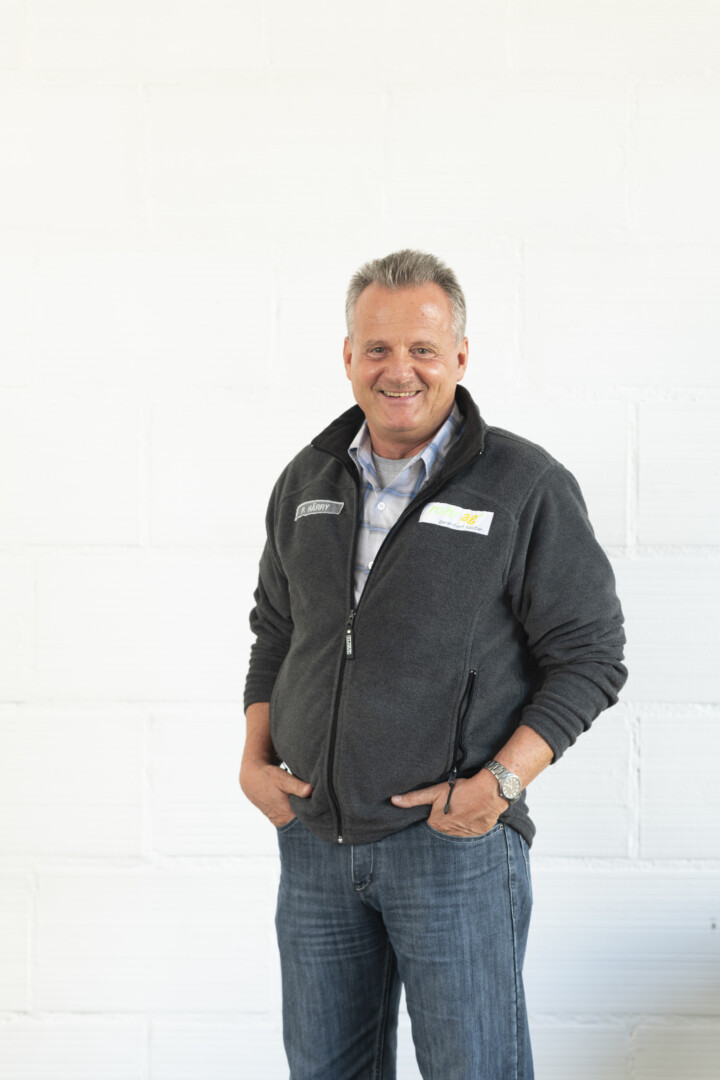
How did the testing with Wetrok Granules come about?
We used to work with highly concentrated cleaning products, but the risk of overdosing was always present in our daily operations. That’s why we switched to ready-to-use cleaners. It worked well in practice, but we found the entire transport and storage process to be too cumbersome. We had been searching for a cleaning product that would be more space-efficient in both storage and transportation. Let’s be honest: with conventional liquid cleaners, you’re transporting over 90 percent unnecessary water around. In the spring of 2018, we heard about the newly introduced Wetrok Granules. Almost simultaneously, we won the University of Basel’s tender and became responsible for cleaning the West/East Cluster with 34 buildings. This is how we first started using Wetrok Granules at the University of Basel. Of course, we rigorously tested whether the granules were truly equivalent to liquid cleaners in terms of cleaning quality before that. The Granule line convinced us, especially in critical applications such as streak-free cleaning of glass or removing greasy fingerprints.
You mentioned that the granules require less space in storage and transportation – can you quantify this?
The storage and transportation process involves several steps for us. When we order cleaning products, they are first delivered to our headquarters in Hausen AG. Then our operations manager delivers the required quantities to our properties and stores them there. When the products are needed, they are loaded onto the cleaning carts by the team leaders and cleaning staff. As you can see, there is a significant amount of transportation and time involved. Not to mention the physical effort required for carrying the containers. I won’t disclose specific financial figures, but I can say this much: Thanks to Granuline, the transportation volume for the University of Basel properties alone is reduced by around 90 percent. This has a significant impact on our cost calculations.
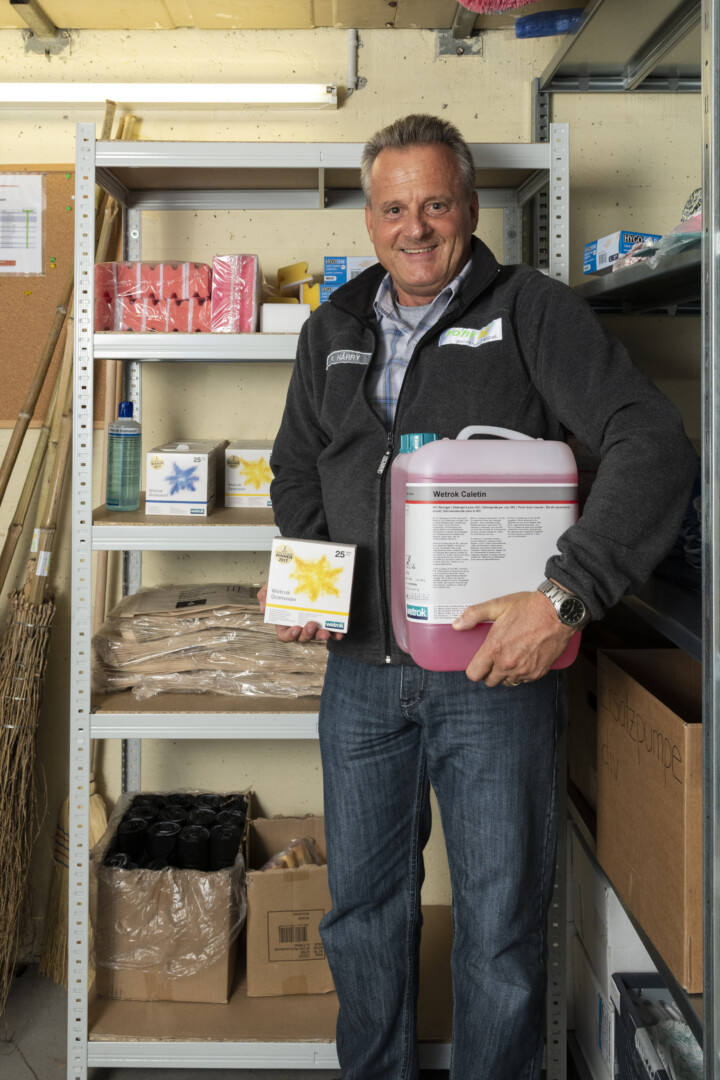
For which applications do you use the granules at the University of Basel?
Perhaps it’s better to ask me what we DON’T use the granules for (laughs). We basically clean all surfaces and the entire sanitary area with granules. That means at the University of Basel: research laboratories, lecture hall desks, office spaces, entrance areas, plastic surfaces in the hallway, glass, mirrors, door handles, walls, stair railings – pretty much everything that isn’t oiled.
“When you include all savings and consider the costs in the long term, granule cleaners are more cost-effective than any conventional liquid cleaner”
How is the application for cleaning staff?
We have never used a cleaning product that is easier to use than Wetrok Granules. Fill the bottle up to the marked line with water, add the granules, close the bottle, and shake it briefly – the cleaning solution is ready for use with a microfiber cloth. Thanks to the individually packaged ‘sachets,’ it’s always correctly dosed. This simple application is a significant advantage – especially since the cleaning staff in the University of Basel’s properties come from 15 different countries. Even those who don’t speak German perfectly understood how it works right away.
Were safety and ecological considerations also significant factors in the decision to use Granulines?
Definitely! As a responsible employer, it is our duty to ensure that our employees can work safely and ergonomically. With Granulines, we have achieved significant improvements in this regard: The granule bags can be easily opened along the perforation and poured into the bottle – eliminating the risk of eye or skin contact with chemicals. In addition, there are no fumes to inhale since the granule products are solvent-free. Moreover, the staff no longer has to carry heavy canisters but can equip the storage or cleaning cart with small, lightweight granule sticks. The use of Granulines also has a positive impact on our ecological footprint: Previously, we had to regularly supply small properties with low consumption with chemicals, which required numerous trips. Thanks to granules, many trips are no longer necessary. With one car trip, we can now supply these small properties with a six-month supply, saving time and reducing CO2 emissions at the same time.
Are there efforts to convert additional properties to granule cleaning?
Not just efforts. As of December 2019, we have converted our entire sanitary and surface cleaning to granules. This means that we clean all our maintenance cleaning customers throughout Switzerland with Wetrok Granules.
Even though granule cleaners are more expensive than liquid cleaners?
They are not! Those who only consider the acquisition costs are planning poorly and very short-sightedly. At Rohr AG, we always look at the total costs incurred by a product – or saved. The savings with Wetrok Granules are striking: Overall, up to 75 percent of storage and transportation costs can be reduced. It starts with the fact that our operations managers need much less time for the transport, distribution, and storage of chemicals – after all, five boxes of ‘granule sachets’ can be carried to the warehouse much faster than five canisters of liquid chemicals. Additionally, we save a lot of money because we have solved the problem of overdosing – the ‘one sachet for one bottle’ principle completely eliminates this major cost factor. No cleaning product has achieved this before! Above all, we save on safety installations: We would have had to equip around 600 properties with spill trays in the warehouse recently. Thanks to the granules, we don’t incur these costs at all: no liquid chemicals, no risk of spillage. So, we saved thousands of francs just on the spill trays. Last but not least, we were able to save costs in training effort – Granulines are so easy to use that a brief initial briefing is sufficient. We are convinced that when you include all savings and consider the costs in the long term, Granulines are even cheaper than any conventional liquid cleaner.
To which businesses would you specifically recommend Wetrok Granules?
For anyone who doesn’t want to carry around hundreds of liters of unnecessary water every day (laughs). No, seriously: Whether it’s a building cleaning company or an internal cleaning department of a nursing home – the granules have the potential to significantly improve cleaning processes in every area, making them more efficient, cost-effective, and enjoyable.


